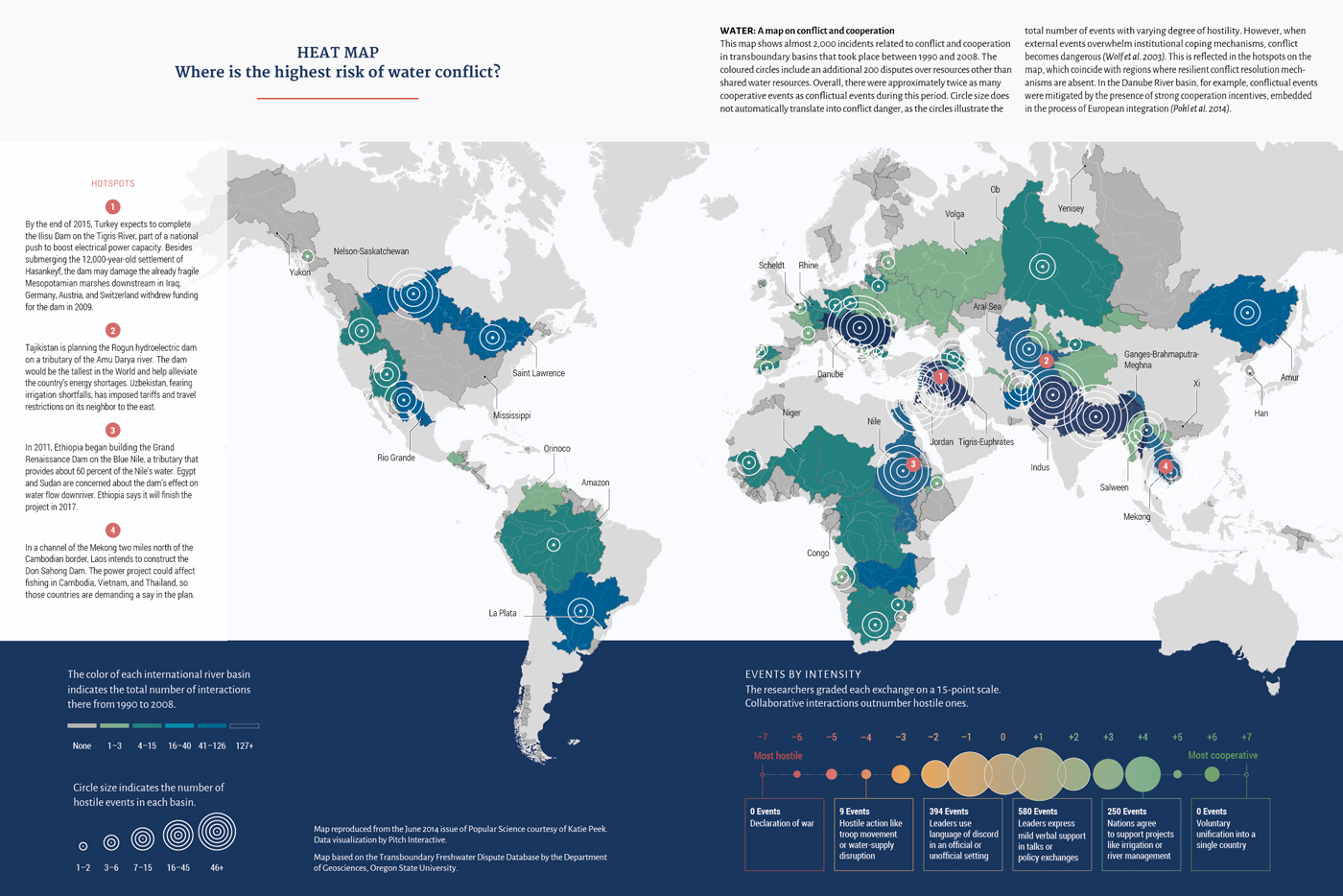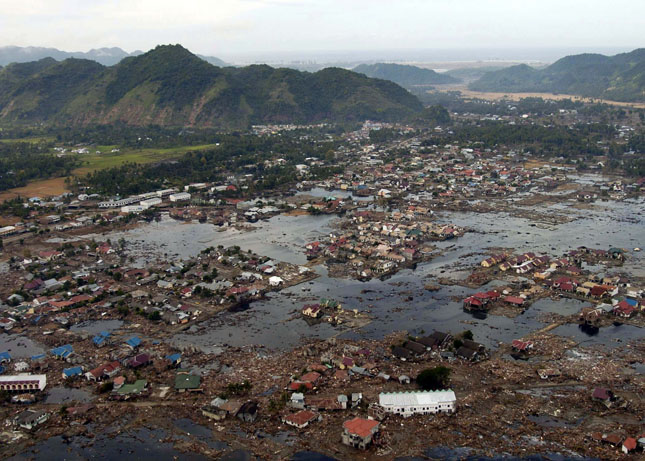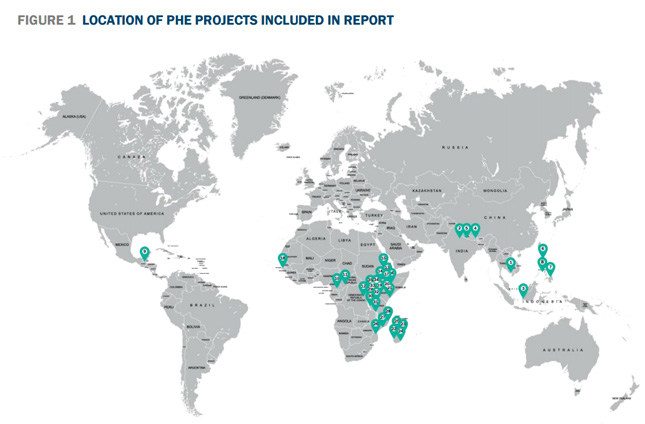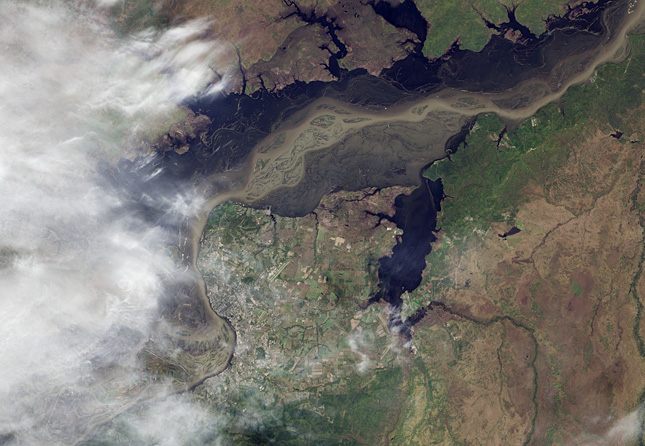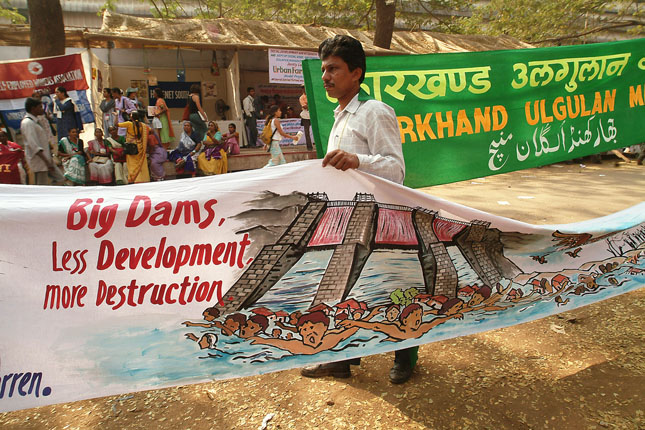-
Lukas Rüttinger, Adelphi
Thailand and Sri Lanka Show How Disasters Can be Catalysts of Fragility or Opportunities for Peace
›June 26, 2015 // By Wilson Center Staff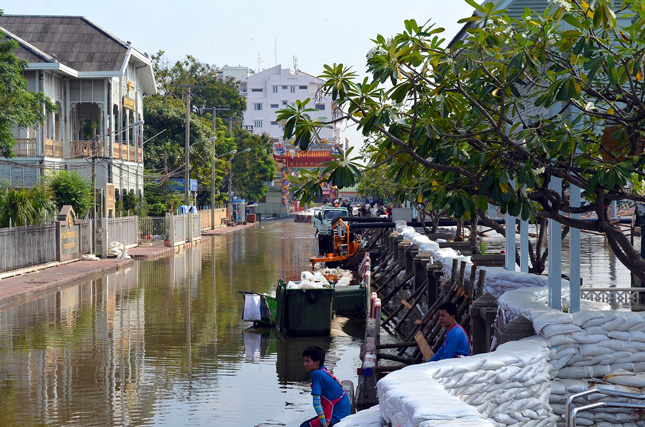
In 2011 Thailand was hit by unprecedented monsoon rains far above the average rainfall of the previous 30 years. Two million people across 26 provinces were affected. During the crisis, hundreds of civilians took it to the streets to protest discrimination by the Flood Response Operation Center and the unfair distribution of water, electricity supply, shelter, and food. Civilians were so angry that they broke a sandbag wall in Bangkok which was protecting a wealthy district from water surges. Public unrest and discontent with the government continued until a military coup in 2013.
-
The World’s Most Hostile International Water Basins [Infographic]
›At the launch of A New Climate for Peace, a new report on climate-fragility risks produced for the G7 by a consortium of international partners including the Wilson Center, USAID Deputy Assistant Administrator Christian Holmes called water a common denominator for climate risk.
-
Adapting to Global Change: Climate Displacement, Mega-Disasters, and the Next Generation of Leaders
›
The world is more connected than ever before, but also more complex. Big, transnational trends like climate change, urbanization, and migration are changing the calculus of geopolitics, while local-level inequalities persist. “[Change] seems to be spinning around us so fast,” said John Hempelmann, president of the Henry M. Jackson Foundation, which honors the legacy of the late senator from Washington State. How can today’s and tomorrow’s leaders adjust to global trends? [Video Below]
-
Do Population, Health, and Environment Projects Work? A Review of the Evidence
›Frequent readers of New Security Beat are no strangers to the PHE approach to development – projects, often community-based, that integrate population, health, and environmental programming in a single intervention. Practitioners suggest that such integrated programming is more effective and efficient than running simultaneous siloed projects, each focusing on a narrower objective. But does the evidence support this conclusion? How effective is the PHE approach?
-
Is Wildlife Trafficking a National Security Threat?
›Trafficking of illegal wildlife goods is quickly becoming one of the most lucrative illicit businesses in the world. With growing demand in Asia, an industry that was once fed by isolated, small-scale poaching incidents is now run by well-organized, transnational criminal networks, similar to narcotics and guns. The Obama administration labeled wildlife trafficking as a national priority in 2013 and released a National Strategy for Combatting Wildlife Trafficking in 2014. A detailed implementation plan for the strategy followed this year, identifying key steps and implementing agencies to help end trafficking in the United States and abroad.
-
Adaptation, Resistance, or Subversion: How Will Water Politics Be Affected by Climate Change?
›
One of the primary ways climate change is expected to affect international relations is through water. There are more than 270 bodies of water that cross over international boundaries, and various methodologies have identified several dozen that are particularly at risk for tension or conflict. So how is climate change affecting transboundary water politics? Are governments and institutions taking the threat seriously? A few years back, a group of researchers decided to focus on this question.
-
What Paul Ehrlich Missed (and Still Does): The Population Challenge Is About Rights
›In 1968, Stanford University biologist Paul Ehrlich predicted hundreds of millions would starve to death over the next decade, many of them Americans, and the world would generally decline into chaos in his book The Population Bomb.
-
The Environmental Democracy Index: Ranking Access to Information and Justice
›June 2, 2015 // By Carley Chavara
Conventional wisdom has been that wealthier countries have better environmental protections than poorer countries. However, a new annual report launched this year, the Environmental Democracy Index, reveals that a strong economy does not necessarily ensure strong environmental rights.
Showing posts from category Asia.


